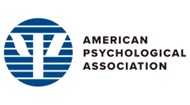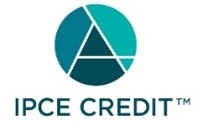Learning Management System User Guide Click Here
Please contact Lynda Reid at mghcme@mgh.harvard.edu or 866-644-7792 with questions.
This multi-week course will focus on cognitive-behavioral therapy for hoarding disorder. Participants will be provided with information on the most recent hoarding psychopathology research that informs treatment. The course will subsequently break down the various therapeutic techniques used in CBT for hoarding into weekly modules.
Available Credits: 3.00 AMA PRA Category 1 Credit™ 3.00 Nursing Contact Hours 3.00 Social Workers 3.00 Participation 3.00 Psychologists CE Credit Register For This CourseThis multi-week course will focus on cognitive-behavioral therapy for hoarding disorder. Participants will be provided with information on the most recent hoarding psychopathology research that informs treatment. The course will subsequently break down the various therapeutic techniques used in CBT for hoarding into weekly modules. Each module will impart the use of techniques through description, visuals, case examples and video vignettes. Modules will include but will not necessarily be limited to, assessment/psychoeducation, motivational interviewing, skills building, cognitive restructuring and exposure and response prevention.
The required reading for this course is a therapist guide that can be purchased via the link below:
https://www.amazon.com/Treatment-Hoarding-Disorder-Therapist-Treatments/dp/019933496X
Steketee, G., & Frost, R.O. (2014, 2nd Ed.). Treatment for hoarding disorder: Therapist Guide. New York: Oxford University Press.
All registrants: $199
This program is intended for:
By the end of this program, participants will be able to:
After Module-1, participants should be able to:
After Module-2, participants should be able to:
After Module-3, participants should be able to:
In support of improving patient care, MGH Institute of Health Professions is jointly accredited by the Accreditation Council for Continuing Medical Education (ACCME), the Accreditation Council for Pharmacy Education (ACPE), and the American Nurses Credentialing Center (ANCC) to provide continuing education for the healthcare team.
Psychologists

Continuing Education (CE) credits for psychologists are provided through the co-sponsorship of the American Psychological Association (APA) Office of Continuing Education in Psychology (CEP). The APA CEP Office maintains responsibility for the content of the programs. MGH Institute of Health Professions designates this activity for 8.0 CE credit.
Physicians
MGH Institute of Health Professions designates this live activity for a maximum of 8.0 AMA PRA Category 1 Credits ™. Physicians should claim only credit commensurate with the extent of their participation in this activity.
Nursing
MGH Institute of Health Professions designates this activity for 8.0 contact hours for nurses. The American Academy of Nurse Practitioners Certification Board (AANPCB) accepts credit from organizations accredited by the ACCME and ANCC.
Social Workers

As a Jointly Accredited Organization, the MGH Institute of Health Professions is approved to offer social work continuing education by the Association of Social Work Boards (ASWB) Approved Continuing Education (ACE) program. Organizations, not individual courses, are approved under this program. State and provincial regulatory boards have the final authority to determine whether an individual course may be accepted for continuing education credit. MGH Institute of Health Professions maintains responsibility for this course. Social workers completing this course receive 8.0 clock hours for continuing education credits.
IPCE Credit

This activity was planned by and for the healthcare team, and learners will receive 8.0 Interprofessional Continuing Education (IPCE) credits for learning and change.
After Module 1, participants should be able to:
• Describe the significance of hoarding to the individual, family and greater community
• Describe the features of hoarding, as well as hoarding’s neurobiological and genetic underpinnings
• Discuss the cognitive deficits frequently seen in hoarding that likely contribute to the disorder and are relevant to treatment.
After Module 2, participants should be able to:
• Describe specialized cognitive-behavioral treatment for hoarding
• List common standardized assessments that are used to evaluate hoarding
• Apply motivational interviewing techniques as they relate to the assessment and treatment of hoarding
• Create a cognitive behavioral model of an individual’s hoarding symptoms
After Module 3, participants should be able to:
• Explain hoarding disorder and the cognitive behavioral treatment of hoarding
• Use cognitive restructuring skills for hoarding specific cognitions
• Use exposure and response prevention surrounding difficulties with discarding and excessive acquisition
• Discuss skills building
This activity has been planned and implemented in accordance with the accreditation requirements and policies of the Accreditation Council for Continuing Medical Education (ACCME) through the joint providership of McLean Hospital and Massachusetts General Hospital. McLean Hospital is accredited by the ACCME to provide continuing medical education for physicians.
McLean Hospital designates this live activity for a maximum of 3.00 AMA PRA Category 1 Credit™. Physicians should only claim credit commensurate with the extent of their participation in the activity.
Massachusetts General Laws, Chapter 13, sections 13, 14, 14A, 15 and 15D and Chapter 112, sections 74 through 81C authorize the Board of Registration in Nursing to regulate nursing practice and education.
This program meets the requirements of the Massachusetts Board of Registration in Nursing (244 CMR 5.00) for 3.00 contact hours of nursing continuing education credit.
Advance practice nurses, please note: Educational activities which meet the requirements of the ACCME (such as this activity) count towards 50% of the nursing requirement for ANCC accreditation.
The Collaborative of NASW, Boston College, and Simmons College Schools of Social Work authorizes social work continuing education credits for courses, workshops, and educational programs that meet the criteria outlined in 258 CMR of the Massachusetts Board of Registration of Social Workers
This program has been approved for 3.00 Social Work Continuing Education hours for relicensure, in accordance with 258 CMR.
This course allows other providers to claim a Participation Certificate upon successful completion of this course.
Participation Certificates will specify the title, location, type of activity, date of activity, and number of AMA PRA Category 1 Credit™ associated with the activity. Providers should check with their regulatory agencies to determine ways in which AMA PRA Category 1 Credit™ may or may not fulfill continuing education requirements. Providers should also consider saving copies of brochures, agenda, and other supporting documents.The Massachusetts General Hospital Department of Psychiatry is approved by the American Psychological Association to sponsor continuing education for psychologists.
The Massachusetts General Hospital Department of Psychiatry maintains responsibility for this program and its content. This offering meets the criteria for 3.00 Continuing Education (CE) credits per presentation for psychologists.
Release Date: August 1, 2020
Expiration Date: July 18, 2027
Review Date: July 6, 2021 by Robert Althoff, MD, PhD
Planners
David H. Rubin, MD (Content Reviewer)
Susan Sprich, PhD (Psychologist Reviewer)
Disclosure Information
In accord with the disclosure policy of McLean Hospital as well as guidelines set forth by the Accreditation Council on Continuing Medical Education, all people in control of educational content, including speakers, course directors, planners, and reviewers, have been asked to disclose all relevant financial relationships with commercial interests of both themselves and their spouses/partners over the past 12 months, as defined below:
Commercial Interest
The ACCME defines a “commercial interest” as any entity producing, marketing, re-selling, or distributing health care goods or services, used on, or consumed by, patients. The ACCME does not consider providers of clinical service directly to patients to be commercial interests. For more information, visit www.accme.org.
Financial relationships
Financial relationships are those relationships in which the individual benefits by receiving a salary, royalty, intellectual property rights, consulting fee, honoraria, ownership interest (e.g., stocks, stock options or other ownership interest, excluding diversified mutual funds), or other financial benefit. Financial benefits are usually associated with roles such as employment, management position, independent contractor (including contracted research), consulting, speaking and teaching, membership on advisory committees or review panels, board membership, and other activities from which remuneration is received, or expected. ACCME considers relationships of the person involved in the CME activity to include financial relationships of a spouse or partner.
Relevant financial relationships
ACCME focuses on financial relationships with commercial interests in the 12-month period preceding the time that the individual is being asked to assume a role controlling content of the CME activity. ACCME has not set a minimal dollar amount for relationships to be significant. Inherent in any amount is the incentive to maintain or increase the value of the relationship. The ACCME defines “’relevant’ financial relationships” as financial relationships in any amount occurring within the past 12 months that create a conflict of interest.
Conflict of Interest
Circumstances create a conflict of interest when an individual has an opportunity to affect CME content about products or services of a commercial interest with which he/she has a financial relationship.
The following planners, speakers, and content reviewers, on behalf of themselves and their spouse or partner, have reported financial relationships with an entity producing, marketing, re-selling, or distributing health care goods or services (relevant to the content of this activity) consumed by, or used on, patients:
Susan Sprich, PhD
Royalties (Co-Author): Oxford University Press
Royalties (Co-Edited Book): Springer
Honoraria (Associate Editors): Association for Behavioral and Cognitive Therapies (ABCT)
All other individuals including course directors, planners, reviewers, faculty, staff, etc., who are in a position to control the content of this educational activity have, on behalf of themselves and their spouse or partner, reported no financial relationships related to the content of this activity.
Policy on Faculty and Provider Disclosure
It is the policy of McLean Hospital that faculty and providers disclose real or apparent conflicts of interest relating to the topics of this educational activity. McLean Hospital has established policies in place that identify and resolve all conflicts of interest prior to this educational activity.
Hardware/Software Specifications
This internet-based CME activity is best experienced using Internet Explorer 8+, Mozilla Firefox 3+, Safari 4+. This Web site requires that JavaScript and session cookies be enabled. Certain activities may require additional software to view multimedia, presentation, or printable versions of the content. These activities will be marked as such and will provide links to the required software. That software may be: Adobe Flash, Adobe Acrobat, Microsoft PowerPoint, and Windows Media Player.
Optimal System Configuration
Flash Player: Adobe Flash Player 10.1+
Browser: Firefox 3+, Internet Explorer 8.0+, Safari 4.0+, or Google Chrome 7.0+
Operating System: Windows XP+ or Mac OS X 10.4+
Internet Connection: 1 Mbps or higher
Minimum Requirements
Windows PC:500-MHz Pentium II; Windows XP or higher; 128 MB RAM; Video Card at least 64MB of video memory; Sound Card at least 16-bit; Macromedia Flash Player 10 or higher, audio playback with speakers for programs with video content; Firefox 1.1+, Internet Explorer 7.0+, Safari 1.0+, Google Chrome, or Opera
Macintosh: Mac OS X 10.3 or higher with latest updates installed; 1.83MHz Intel Core Duo or faster; RAM: 128MB or more; Video Card: at least 64MB of video memory; Sound Card: at least 16-bit
We have a dedicated staff member who is available by phone 5 days per week between 8 am and 5 pm by calling 866-644-7792 or email at mghcme@mgh.harvard.edu. All inquiries will be dealt with in a timely (within one business day) and professional manner. Requests for credits or refunds will be reviewed by the Director of the Division of Professional and Public Education, Massachusetts General Hospital. Please refer to our cancellation policy for additional information.”